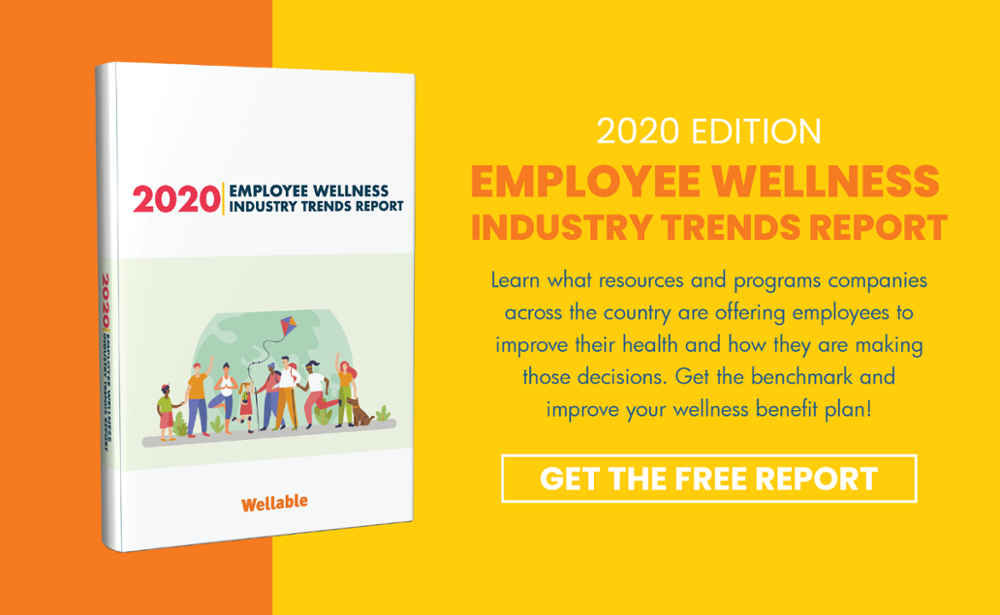In order to offer attractive benefits to recruit and retain talent in a tight labor market, more financial investment is now required from companies. It’s not just the rising costs of health insurance, but the demand for more expansive benefits and a holistically-minded approach to well-being.
Willis Towers Watson (WTW), an insurance brokerage and advisory company, recently conducted a survey on employer benefits trends, gathering data from over 4,300 companies across 88 countries, including 400 large and mid-size employers in the United States. Respondents overwhelmingly reported that the rising costs of benefits will be the biggest challenge for them in the next three years, with 82% identifying costs as a primary concern.
This is consistent with Wellable’s 2020 Wellness Industry Trends Report, which found that 99% of employers are either somewhat influenced (20%) or significantly influenced (79%) by costs when making benefits decisions. The report found this is a challenge for companies no matter their size. Relatedly, 98% of those surveyed by Wellable also ranked pricing as their top criteria when selecting a wellness vendor.
WTW’s survey respondents also reported that communicating benefit choices to employees (53%), providing diverse options for multigenerational workforces (50%), and a lack of employee engagement (47%) were significant issues. To improve wellness program effectiveness, the survey noted that some employers hope to change their strategy by improving benefit choice and flexibility and tailoring offerings to better meet employee needs. Addressing these issues will greatly help their overall value on investment and employee engagement.
Holistic Approach Remains Key
It’s no surprise that pricing is a top concern, because wellness is no longer limited to having health insurance and a retirement plan.
In WTW’s survey, respondents said they are focused on offering a broad range of benefits. Eighty percent want to implement programs that support physical, emotional, financial, and social wellness altogether. In addition, 70% plan to focus on enhancing corporate social responsibility (CSR) policies by aligning them with their benefit strategy over the next three years, a significant increase from previous reports.
“While controlling costs remains their top challenge, employers are increasingly focused on a broader benefit strategy that goes beyond their core health and retirement offerings,” said Jennifer DeMeo, Senior Director for Retirement at WTW. Mental health, stress management, social well-being, and personal and career growth all factor into a competitive, holistic program.
Wellable’s report also underscores this holistic focus, as data shows a clear demand for both mental health support—including stress management as well as mindfulness and meditation resources—and financial wellness programs.
Technology Opens Up More Benefits Options and Strategies
Technology-driven solutions are generally more affordable to implement than other traditional offerings. They don’t require a large amount of resources or additional infrastructure, are easily scalable to company size, and can also be accessed by remote employees. Thus, they can meet companies’ goals for controlling costs while offering a variety of solutions to choose from.
WTW discovered that a significant majority (82%) of employers aim to use new technology programs to deliver benefit messages in the next three years. This is up from just 44% surveyed in the past three years. Furthermore, 65% of employers (up from 38% in the previous three years) want to create a benefits shopping experience for employees, again adopting innovative solutions to meet expectations.
Wellness apps and tools are becoming more numerous, providing many options for employees to meet their overall wellness needs. Telemedicine, which can offer more affordable healthcare visits, continues to be one very popular offering for employers. Wellable’s report found that 62% of companies plan to invest more in telemedicine, making it one of the most popular benefits.
Other technology-driven solutions include online wellness challenges, health education resources, mindfulness and meditation apps, disease management tools, and much more. It can be an affordable and convenient way to build a competitive benefits package that incorporates all aspects of wellness.














